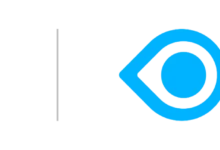Safe Biomedical and Sharps Waste Disposal in Arizona with remedi

Effective biomedical waste disposal is a cornerstone of modern healthcare operations. With growing volumes of regulated materials generated by clinics, hospitals, laboratories, and related facilities, institutions must adopt practices that prioritize safety, regulatory compliance, and environmental responsibility. remedi understands these challenges and offers tailored medical waste disposal solutions designed to meet stringent requirements while advancing sustainable treatment approaches. This article explores critical aspects of biomedical waste disposal, best practices for sharps disposal, and how remedi’s services can help organizations optimize costs, reduce risk, and demonstrate environmental stewardship.
Biomedical waste disposal refers to the entire lifecycle of regulated healthcare waste: from its identification and segregation at the point of generation, to secure containment, transportation under regulatory guidelines, treatment to neutralize infectious agents or hazardous chemicals, and final disposition. Proper handling of biomedical waste is essential to prevent pathogen transmission among patients, staff, and waste-handling personnel; to avoid contamination of air, water, or soil; and to maintain compliance with federal, state, and local regulations. Inadequate practices can result in needlestick injuries, exposure incidents, regulatory penalties, reputational harm, and environmental damage. Therefore, a robust biomedical waste disposal program is nonnegotiable for any organization generating regulated medical waste.
Defining Medical Waste Disposal Requirements
Medical waste disposal encompasses a broad range of materials classified as regulated medical waste. Typical categories include infectious waste (e.g., soiled dressings, cultures, specimens), pathological waste (e.g., tissues), chemical waste (e.g., certain laboratory reagents), and pharmaceutical waste (e.g., expired or unused medications). Each category carries specific handling, containment, transport, and treatment criteria. Compliance demands accurate waste characterization to avoid over-classifying nonregulated materials, which inflates disposal costs, or under-classifying hazardous items, which risks safety and regulatory violations. remedi assists facilities in conducting thorough waste audits, refining segregation protocols, and implementing clear, easy-to-follow guidelines so that staff can consistently distinguish between general waste streams and those requiring regulated disposal.
Sharps Disposal Best Practices
Sharps disposal is a pivotal component of medical waste management, given the acute hazards posed by needles, scalpels, lancets, and other instruments capable of puncturing skin. Improper sharps disposal exposes healthcare workers and waste handlers to needlestick injuries, which may transmit bloodborne pathogens. Best practices for sharps disposal include:
· Ensuring puncture-resistant sharps containers are placed at every point of use, positioned so that staff can immediately deposit sharps after use.
· Clearly labeling containers and ensuring closure instructions are visible.
· Monitoring fill levels to prevent overfilling; containers should be replaced before they reach capacity.
· Training all personnel on safe handling and disposal procedures, including never recapping needles by hand.
· Partnering with a disposal provider that supplies compliant containers, arranges timely collection, and uses approved treatment methods.
remedi’s sharps disposal services supply puncture-resistant containers in appropriate sizes, coordinate removal schedules based on facility volume, and ensure all treatment processes neutralize infectious agents before final disposal. This comprehensive approach reduces incident rates and simplifies compliance oversight.
Regulatory Compliance for Medical Waste Disposal
Medical waste disposal is subject to regulations from agencies such as the Environmental Protection Agency (EPA), Occupational Safety and Health Administration (OSHA), Department of Transportation (DOT), and relevant state and local health authorities. Key requirements include: correct waste classification; use of approved containers and labeling; secure transport manifesting; documented treatment and final disposition; worker training on hazard communication and spill response; and recordkeeping to demonstrate due diligence. remedi’s compliance experts provide ongoing guidance on evolving regulations, deliver tailored training resources for clinical and support staff, and maintain transparent documentation—manifests, certificates of destruction, and audit-ready reports. By embedding compliance into daily operations, facilities minimize risk of fines, avoid service interruptions, and safeguard accreditation status.
Sustainable Approaches to Medical Waste Disposal
Traditional treatment methods for medical waste—particularly incineration and landfilling—pose environmental challenges, including emissions of pollutants and greenhouse gases or long-term waste accumulation. remedi is committed to advancing sustainable medical waste disposal practices by leveraging technologies and processes that neutralize pathogens while recovering recyclable materials when feasible. For example, certain treated plastics or textiles may be processed into feedstock for manufacturing new products once safety criteria are met. Such recycling reduces the volume sent to incinerators or landfills, cutting environmental footprint and aligning with broader corporate social responsibility goals. Facilities partnering with remedi benefit from transparent reporting on diversion metrics, enabling them to demonstrate measurable progress in sustainability initiatives to stakeholders and patients.
Cost Optimization in Biomedical Waste Disposal
Well-designed biomedical waste disposal programs offer significant opportunities for cost savings. Accurate waste characterization prevents nonhazardous materials from being misclassified as regulated waste, avoiding unnecessary disposal fees. remedi’s waste audits identify streams that can be redirected to general refuse or recycling. Sustainable recycling initiatives may offset costs by reclaiming value from processed materials. Predictable collection schedules and transparent fee structures eliminate unexpected surcharges associated with emergency pickups or ad-hoc services. Furthermore, reducing incident rates for sharps injuries lowers workers’ compensation exposure. By consolidating logistics through remedi’s turnkey services—from container provisioning to treatment and reporting—facilities streamline administrative overhead, allowing budget predictability and enabling reinvestment into patient care or operational improvements.
Implementing an Effective Waste Management Program
Launching or enhancing a biomedical waste disposal program involves several collaborative steps:
· Conducting an initial audit: remedi evaluates waste generation patterns across departments to tailor solutions for each facility’s unique needs.
· Refining segregation practices: clear signage, color-coded containers, and staff training ensure consistent identification of regulated materials at the point of generation.
· Selecting appropriate containers: remedi offers options for reusable or single-use containers sized to match volume and workflow; placement strategies minimize handling risks.
· Scheduling reliable collections: based on volume and facility type, remedi arranges pickups or mail-back options for remote/low-volume sites, always complying with DOT transport regulations.
· Choosing treatment methods: remedi’s permitted facilities apply approved processes that neutralize infectious agents, with sustainable recycling where possible.
· Establishing documentation protocols: manifests, certificates of destruction, and sustainability reports are generated for compliance audits and internal review.
· Providing ongoing training and support: remedi’s educational materials cover hazard communication, spill response, sharps safety, and updates on regulatory changes.
This integrated approach fosters continuous improvement: regular performance reviews track metrics—volumes diverted, incident rates, compliance audit outcomes, cost trends—and adjustments are made to optimize program effectiveness over time.
Building a Culture of Safety and Accountability
Successful biomedical waste disposal extends beyond logistics; it requires a culture where all team members understand the importance of proper practices. remedi’s training programs engage clinical and nonclinical staff through hands-on instruction, scenario-based discussions, and refresher sessions. Emphasizing the rationale behind safe handling—protecting colleagues, patients, and the community—encourages adherence. Leadership support and visible commitment reinforce accountability. By embedding waste management protocols into daily routines, facilities reduce errors, lower incident rates, and maintain high morale among staff confident in their working environment’s safety.
Measuring Impact and Reporting
Data-driven oversight is essential for continuous program improvement. remedi equips clients with dashboards or summary reports tracking key performance indicators: volume of regulated waste versus general waste, percentage of waste diverted from incineration or landfill through recycling, sharps incident rates, training completion rates, and cost savings achieved. Regular review meetings between facility teams and remedi advisors identify areas for refinement—such as adjusting container placement, updating training modules, or exploring new treatment technologies. Transparent reporting also supports sustainability communications with stakeholders, demonstrating measurable environmental gains and reinforcing the facility’s commitment to responsible practices.
Adapting to Evolving Needs and Regulations
Healthcare operations and regulations continuously evolve, whether due to emerging infectious threats, new treatment modalities, or updated environmental standards. remedi stays abreast of regulatory changes and industry best practices, proactively advising clients on necessary adjustments. Whether introducing specialized containment for novel waste streams, updating protocols after regulatory revisions, or scaling services for facility expansions, remedi’s flexible model ensures that waste management programs remain aligned with current requirements and institutional goals.
Why Partner with remedi?
Selecting the right biomedical waste disposal partner is crucial. remedi offers: deep expertise in regulated waste management; compliance guidance spanning federal, state, and local requirements; sustainable treatment innovations that recover recyclable materials; transparent reporting and predictable pricing; comprehensive training resources fostering a safety-oriented culture; and tailored solutions for facilities of varying size and complexity. By entrusting waste management to remedi, healthcare organizations can focus on core patient care missions, confident that disposal processes are safe, compliant, cost-effective, and environmentally responsible.
Conclusion and Call to Action
Biomedical waste disposal and sharps disposal lie at the intersection of safety, compliance, cost management, and sustainability. Implementing a robust program requires accurate waste characterization, clear segregation, reliable containment and transport, approved treatment methods, thorough training, and ongoing performance measurement. remedi’s comprehensive services address each of these components, helping facilities reduce risk, optimize expenses, and achieve measurable environmental benefits. To explore how remedi can design a customized medical waste disposal program for your organization, reach out to remedi’s team for an in-depth assessment. Embrace safer, greener waste management practices today by partnering with remedi.





